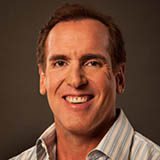Lawyers are supposed to be strong, impervious personalities. To have to look inside ourselves and face any mental health issues that might be seen as a weakness is tough.
When you think of an “alcoholic”, you probably don’t picture a lawyer in an expensive suit fronting up to court. Yet studies have shown lawyers are more than three times as likely as the general population to be problem drinkers. The statistics surrounding alcoholism in the legal profession and its relationship with mental health tell a different story.
Jess* was a 23-year-old law graduate when she began her career in a boutique criminal law firm. Her days would start at 6am and a “good day” would see her arrive home about 7 or 8pm. But even the good days at work would swarm her thoughts well beyond their welcome.“I was finding it hard to fall asleep without drinking,” says Jess, now a top-tier senior associate who consistently appears in conference programs and leads industry events. She asked to remain anonymous for this story to protect her reputation.
“I would be going over cases and replaying the day’s work in my head. Going over submissions in court, rewriting things. Thinking, ‘Okay, I’ve got to remember this when I wake up.’ I was so exhausted physically, but my mind was wired.”
Jess shudders at the memories of grim criminal case files she would mull over until the early hours, her mind reeling to process it all. Assault, sexual assault, drug dealings and cases involving children. The only thing that would deafen the racket in her head was alcohol.
“It got to a stage where I was easily drinking a bottle of wine every night, just to fall asleep,” she admits.
Do lawyers have a drinking problem?
The National Health and Medical Research Council (NHMRC) recommends drinking no more than two standard drinks on any day to reduce the risk of alcohol-related harm over a lifetime. Bear in mind that a standard drink is less than most people think – a large glass of wine can easily contain two or more. Downing a bottle of wine in a couple of hours – as Jess did most nights for three years – would flood your system with about eight standard drinks.
Jess was certainly not the first lawyer to turn to alcohol as a release from the high-stress, at times traumatic, career in law. A 2014 UNSW study involving more than 1,000 practising Australian lawyers found as many as one in three could be problem drinkers. US studies have shown that lawyers are almost twice as likely as the general population to abuse substances. And the American Bar Association and Hazelden Betty Ford Foundation’s 2016 research, based on a survey of more than 13,000 practising lawyers and judges, showed that up to 36 per cent of legal professionals could be classified as problem drinkers. To put that in perspective, the World Health Organization estimates that 10 per cent of the overall Australian population are problem drinkers.
“In over 20 years of clinical experience, I’ve seen a lot of lawyers with alcohol use disorder,” says Greg de Moore, a psychiatrist at Westmead Hospital and director on the board of Minds Count, a charity previously known as the Tristan Jepson Memorial Foundation that is dedicated to promoting awareness of mental health and depression in the legal community.
“Being a professional, you have access to alcohol – money to buy it and also a lifestyle that makes it almost normal,” de Moore says. “The bar, as it is ironically named, is part of the workplace.”
De Moore says there are personality aspects among great lawyers that lend themselves more readily to depression, which often goes “hand in hand” with alcohol abuse. Perfectionism and competitiveness are two.
“I find lawyers are very driven people,” he says. “They set high standards. There is a link between that type of methodical, obsessional person and depression.
“Methodical people like to be in control, but there are a lot of things that happen in a lawyers’ job that are out of their control.”
 Brian Cuban, author of The Addicted Lawyer
Brian Cuban, author of The Addicted Lawyer
Depression, alcohol and the law
The high risk of depression for lawyers and law students has become accepted knowledge in the past decade. Minds Count has been leading discussions about mental health since it was established in 2008 and has coordinated studies with the University of Sydney’s Brain & Mind Research Institute, finding that up to one in three Australian lawyers suffers from some form of psychological distress.
In 2014, Minds Count released guidelines that sought to reduce the incidence of depression in the legal industry, which all of Australia’s top-tier firms and many mid-tiers, government legal departments, community legal centres and in-house counsel teams have since signed up to. But it seems there has been little discussion about the part alcohol plays in relation to mental health.
“Depression and alcohol tend to go hand in hand,” says de Moore. “Alcohol masks depression, just like it can mask a lot of other mood disorders. Interestingly, the alcohol molecule is an anxiolytic, which is a drug that can reduce anxiety. Take someone off alcohol and it will unmask that anxiety.”
BeyondBlue and Beaton Consulting have investigated the links between depression and alcohol in professional industries. Their 2007 report Opening Our Eyes to Depression Among Australian Professionals found that lawyers were more likely than their colleagues in other professions to use alcohol and drugs to cope with depression. More than 50 per cent of those who suffered from depression were self-medicating with alcohol.
The Law Institute of Victoria’s 2012 report Mental Health and the Legal Profession: a Preventative Strategy also confirmed links between mental health challenges and substance addiction specifically in the legal profession. It noted that, “[d]iscussions during consultations suggested that lawyers potentially have an unhealthy approach to alcohol consumption” and that “alcohol abuse (and, to a lesser extent, substance abuse) is prevalent in the legal profession as a maladaptive strategy for dealing with stress”.
Brian Cuban, a US attorney and author of The Addicted Lawyer, knows too well how lawyers can fall into the trap of drinking to deaden depression or psychological distress. Cuban suffered from alcoholism, cocaine addiction and eating disorders for 27 years before he began his recovery in 2007. His addictions compounded his severe depression and contributed to three failed marriages, landed him in psychiatric facilities and jail, and almost led him to take his own life.
“Lawyers are supposed to be strong, impervious personalities,” says Cuban.
“To have to look deep inside ourselves and face any mental health issues that might be seen as a weakness is tough. We do what I did – we kick the can down the road and don’t tell anyone about it. But addiction is a progressive disease that rarely goes away by itself.
“From the standpoint of problem drinking, we [lawyers] are truly a profession in crisis.”
The binge culture
Cuban believes the legal profession has a “binge drinking culture” that starts in law school. Law students build their tolerance for alcohol at regular university parties, which often feature huge bar tabs funded by top-tier firms.
Such habits become hard to shake when graduates enter the real world – in which alcohol is present at almost every client lunch, team building session or networking event.
“In the States there is definitely a drinking culture in law school,” says Cuban.
“We would have happy hours and be pouring beers and alcohol in our student labs. It was just accepted that you would go out and get drunk. Addicted law students become addicted lawyers.”
Jess says it’s the same in Australia. As a teenager who moved out of home at 17 to attend university in Brisbane, she started drinking with her peers five days a week. It wasn’t unusual for her to down a full bottle of vodka in one night and be able to remain standing.
“Looking back, I realise everything revolved around alcohol,” she says.
Chris Raine, the CEO and founder of Hello Sunday Morning (HSM), an online community that seeks to help members to reduce their social drinking habits, believes drinking is so culturally ensconced in Australian culture that it is extremely tough for people to cut down on their consumption – even if they would like to.
The challenge is potentially more difficult in industries such as law, which rely on booze as a social lubricant at client lunches, a glue for team bonding on Friday nights, and a signal for clocking off when lawyers arrive home.
“You finish work, you have a drink. You go to a work function, have a drink,” says Raine.
“We so easily become trapped in cycles that we’re not happy with because of the environment. If you make a change that is visible, you are likely to be ostracised or criticised. And yet peer support is so crucial in this challenge.”
Why is no one talking about it?
Raine says HSM offers programs for corporate teams and has run them at companies such as KPMG, NIB, Google and Vodafone. These programs are not about implementing blanket bans on alcohol, but aim to help people assess and perhaps change the impact alcohol is having on their lives.
Yet Raine says the ranks of the legal profession have so far remained closed to the initiative.
“We had amazing pro bono legal support from Freehills, who actually set up the charity structure of Hello Sunday Morning for free, which was awesome,” says Raine.
“Then I suggested, maybe we could do some stuff with your team?”
The firm stopped short of taking up Raine’s offer. Apparently the HSM program did not fit within with the firm’s existing wellness or graduate training programs.
“I think firms think, ‘If we’re supporting HSM, the implication is we have a drinking problem,” says Raine. “I can understand corporations baulking at that. But the truth is, we have a solution. It can help the culture in many ways.”
Jess agreed to speak to LSJ about her battle with alcohol on the condition she remain anonymous. But she was not the only lawyer who contacted my various inboxes when I raised, via social media, the issue of lawyers drinking too much.
“Alcoholism in our profession has always been an issue,” messaged one lawyer. “‘High-functioning alcoholic’ is a term thrown around a lot,” another wrote. Other comments included: “Where there’s stress and there’s money, there’s going to be alcohol” and “I don’t think there is a lawyer in Australia who doesn’t know another lawyer who drinks too much, or drinks more than they should”.
It was telling that all these voices wanted to remain anonymous rather than admit to any issues publicly. Telling that it is not yet as acceptable to admit to addiction or alcohol issues in the same way mental health advocates have outed their battles with depression.
Former Channel Seven newsreader, HSM ambassador and recovering alcoholic Talitha Cummins knows how hard it is to publicly admit you may have a drinking problem. Although Cummins is a journalist not a lawyer, she understands the dangerous role alcohol can play in a career rife with anxiety and competitiveness – features that are common to both journalism and law.
“I think many lawyers would be suffering in silence,” says Cummins who, unbeknown to her work colleagues, would drink to blackout and was hospitalised a number of times during her darkest years.
“There is this stereotype that an alcoholic is a man sitting on a park bench drinking out of a brown paper bag, homeless, and I was quite the opposite to that. I was professional, educated, I had a successful career, yet I was struggling with alcohol.”

What needs to change?
Based on the 2014 UNSW study of 1,000 Australian lawyers, if one in three lawyers is a problem drinker, about 330 lawyers at a top-tier firm employing 1,000 lawyers are statistically likely to be problem drinkers. If you consider the bottom-line impact on such a large proportion of employees in the firm, the effects are substantial. But if you consider the effects of their habits on their families and communities, the impact is devastating.
“The impact on any firm’s reputation, efficiencies and bottom line is enormous,” says de Moore.
“Heavy drinkers experience subtle damage to the frontal lobe and can become reckless or make poor decisions. The more you drink, the more you destroy parts of your brain. Employees become inefficient, sloppy, unreliable.”
De Moore says just one in seven Australians with an alcohol use disorder has sought treatment. That leaves more than 280 of the 330 lawyers suffering in silence in our statistical scenario. What if law firms could start a conversation to help just a few of those lawyers to reassess their habits?
“There’s clearly no easy fix,” de Moore admits. “I’ve never been to an alcohol-free legal function. It would be interesting just to run one, just to draw attention to the problem.”
De Moore says there are physical things you can do to replace alcohol and curb cravings – a healthy diet, exercise, developing relationships and pursuing goals outside work can help. He notes that lawyers are fortunate to have professional support at their fingertips. The Law Society of NSW, for example, offers members free and independent, confidential support over the phone via Lifeline for Lawyers.
 Talitha Cummins, HSM Ambassador
Talitha Cummins, HSM Ambassador
There is this stereotype that an alcoholic is a man sitting on a park bench drinking out of a brown paper bag, homeless, and I was quite the opposite to that. I was professional, educated, I had a successful career, yet I was struggling with alcohol.
Why is no one talking about it?
Raine says HSM offers programs for corporate teams and has run them at companies such as KPMG, NIB, Google and Vodafone. These programs are not about implementing blanket bans on alcohol, but aim to help people assess and perhaps change the impact alcohol is having on their lives.
Yet Raine says the ranks of the legal profession have so far remained closed to the initiative.
“We had amazing pro bono legal support from Freehills, who actually set up the charity structure of Hello Sunday Morning for free, which was awesome,” says Raine.
“Then I suggested, maybe we could do some stuff with your team?”
The firm stopped short of taking up Raine’s offer. Apparently the HSM program did not fit within with the firm’s existing wellness or graduate training programs.
“I think firms think, ‘If we’re supporting HSM, the implication is we have a drinking problem,” says Raine. “I can understand corporations baulking at that. But the truth is, we have a solution. It can help the culture in many ways.”
Jess agreed to speak to LSJ about her battle with alcohol on the condition she remain anonymous. But she was not the only lawyer who contacted my various inboxes when I raised, via social media, the issue of lawyers drinking too much.
“Alcoholism in our profession has always been an issue,” messaged one lawyer. “‘High-functioning alcoholic’ is a term thrown around a lot,” another wrote. Other comments included: “Where there’s stress and there’s money, there’s going to be alcohol” and “I don’t think there is a lawyer in Australia who doesn’t know another lawyer who drinks too much, or drinks more than they should”.
It was telling that all these voices wanted to remain anonymous rather than admit to any issues publicly. Telling that it is not yet as acceptable to admit to addiction or alcohol issues in the same way mental health advocates have outed their battles with depression.
Former Channel Seven newsreader, HSM ambassador and recovering alcoholic Talitha Cummins knows how hard it is to publicly admit you may have a drinking problem. Although Cummins is a journalist not a lawyer, she understands the dangerous role alcohol can play in a career rife with anxiety and competitiveness – features that are common to both journalism and law.
“I think many lawyers would be suffering in silence,” says Cummins who, unbeknown to her work colleagues, would drink to blackout and was hospitalised a number of times during her darkest years.
“There is this stereotype that an alcoholic is a man sitting on a park bench drinking out of a brown paper bag, homeless, and I was quite the opposite to that. I was professional, educated, I had a successful career, yet I was struggling with alcohol.”
What needs to change?
Based on the 2014 UNSW study of 1,000 Australian lawyers, if one in three lawyers is a problem drinker, about 330 lawyers at a top-tier firm employing 1,000 lawyers are statistically likely to be problem drinkers. If you consider the bottom-line impact on such a large proportion of employees in the firm, the effects are substantial. But if you consider the effects of their habits on their families and communities, the impact is devastating.
“The impact on any firm’s reputation, efficiencies and bottom line is enormous,” says de Moore.
“Heavy drinkers experience subtle damage to the frontal lobe and can become reckless or make poor decisions. The more you drink, the more you destroy parts of your brain. Employees become inefficient, sloppy, unreliable.”
De Moore says just one in seven Australians with an alcohol use disorder has sought treatment. That leaves more than 280 of the 330 lawyers suffering in silence in our statistical scenario. What if law firms could start a conversation to help just a few of those lawyers to reassess their habits?
“There’s clearly no easy fix,” de Moore admits. “I’ve never been to an alcohol-free legal function. It would be interesting just to run one, just to draw attention to the problem.”
De Moore says there are physical things you can do to replace alcohol and curb cravings – a healthy diet, exercise, developing relationships and pursuing goals outside work can help. He notes that lawyers are fortunate to have professional support at their fingertips. The Law Society of NSW, for example, offers members free and independent, confidential support over the phone via Lifeline for Lawyers.
But he says the first step lawyers need to take – both individually and as firms supporting their employees – is to talk about the issue. Jess agrees.
“I think it’s something that needs to be explored and spoken about, it’s just not at the stage where I could put my name to that sort of stuff yet,” says Jess, who reduced her alcohol consumption dramatically after a health scare a few years ago. Since moving to her new firm and practice area in a new city this year, she rarely touches alcohol.
“It can still have judgment and implications for my career, which is a shame,” says Jess.
“Maybe in a few years’ time I will be able to say, ‘Hey, remember that article that Kate did? Well that was me.’ But not today.”




